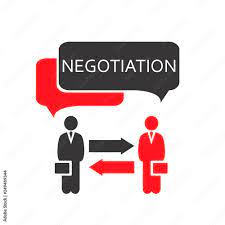9 Moses answered [to Pharaoh], “We will all go, including our children and our old people. We will take our sons and daughters, our sheep and goats, and our cattle, because we must hold a festival to honor the Lord.” 10 The king said, “I swear by the Lord that I will never let you take your women and children! It is clear that you are plotting to revolt. 11 No! Only the men may go and worship the Lord if that is what you want.” With that, Moses and Aaron were driven out of the king’s presence
Exodus 10:9-11

Leading up to this passage, Moses and Pharaoh have been battling back and forth. Pharaoh unyielding to the idea of an Israelite departure and Moses unrelenting while bringing God’s wrath with each episode. Right before the plague of locust, Pharaoh asks who will be going to worship. Moses replies that it would be everyone including the flocks and belongings. Pharaoh tells them he will not allow women and children to go, which was likely an insurance policy. When negotiations break down, Pharaoh drives out Moses and Aaron.
Pharaoh was not ignorant, Moses from the beginning told him that they need to go and worship, implying they would return. Yet they are taking everything, all flocks and belongings. It would be like your neighbor telling you he is going to visit family for a few weeks and then brings a moving van and takes all his possessions. Wouldn’t you think he was being dishonest with his intentions?
Israelites were a large part of Egypt’s economy and Pharaoh did not want this to end. This passage is evidence of that and that the Egyptians were dependent upon them. In fact, this passage indicates he was fearful of their size and power. Pharaoh could deal with the great loss of God’s wrath if he had them as slaves to rebuild his kingdom. However, if they left, who would do all the dirty work?
Yet this was not God’s plan and there would be no negotiation. Pharaoh required all or nothing but God promised total deliverance, not partial. In fact, when they left, they plundered the Egyptians and took great riches, an added benefit likely due to Pharaoh’s stubbornness. I tend to think this was the catalyst for Pharaoh going cross eyed crazy and chasing them into the sea. The end result transpired just as God said, but it was difficult to see from the beginning. Moses doubted himself and God several times through this process. But in the end, he was faithful and continued to step out in faith.
Like Moses, we often are willing to trust God up to a point where we feel that we must make a decision to continue to trust God or give up hope. When it begins to become a sacrifice and when we are not willing to pass that point we like to cling on to the assurance we can return if we are let down. This kind of faith will never see victories over sickness and sin. To let go is to let God. Stepping out of the boat, calling down fire, stating the promises of God to unbelievers. Do you have a safety net? Get rid of it. Close your eyes and step off the ledge of doubt and God will catch you!

No responses yet